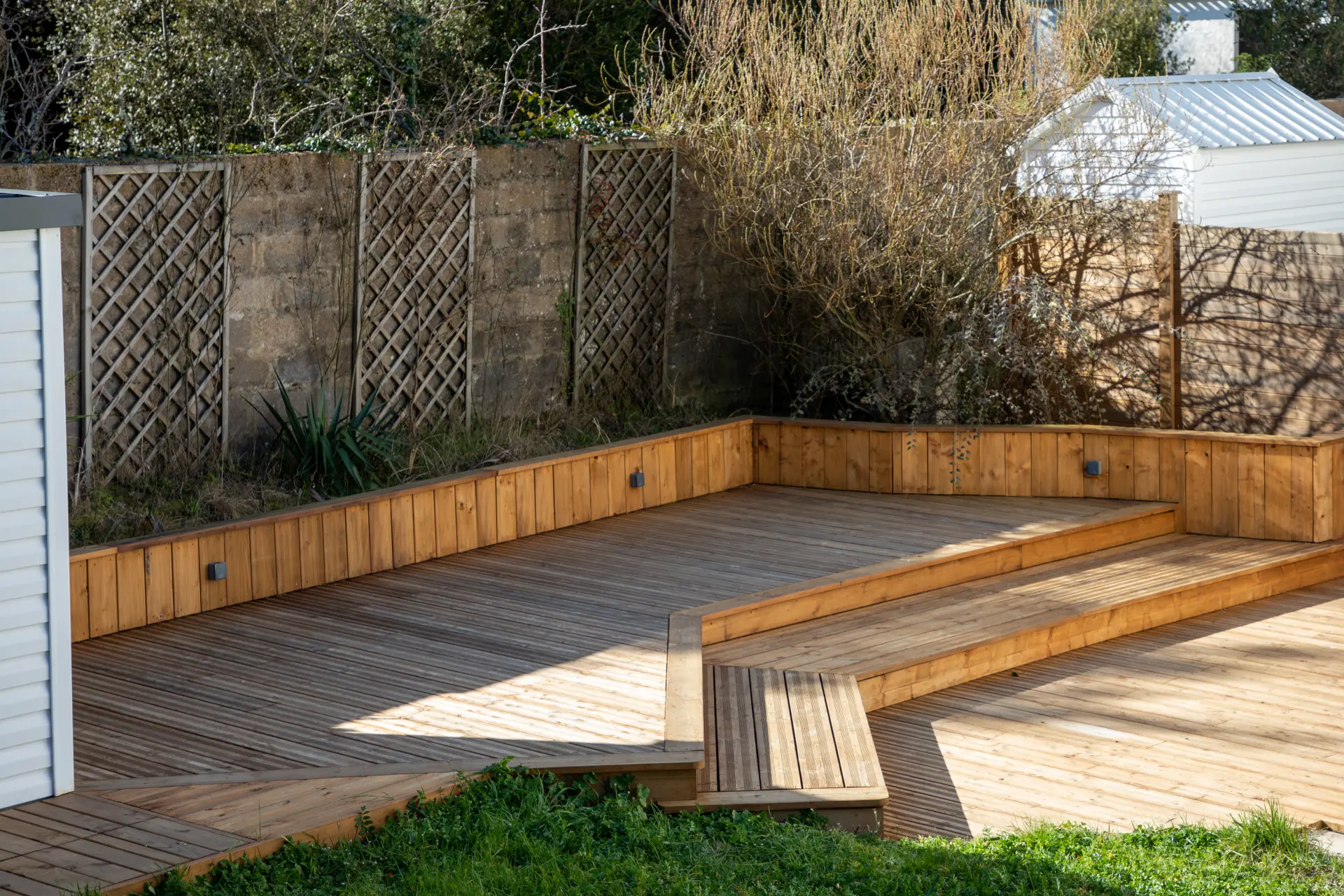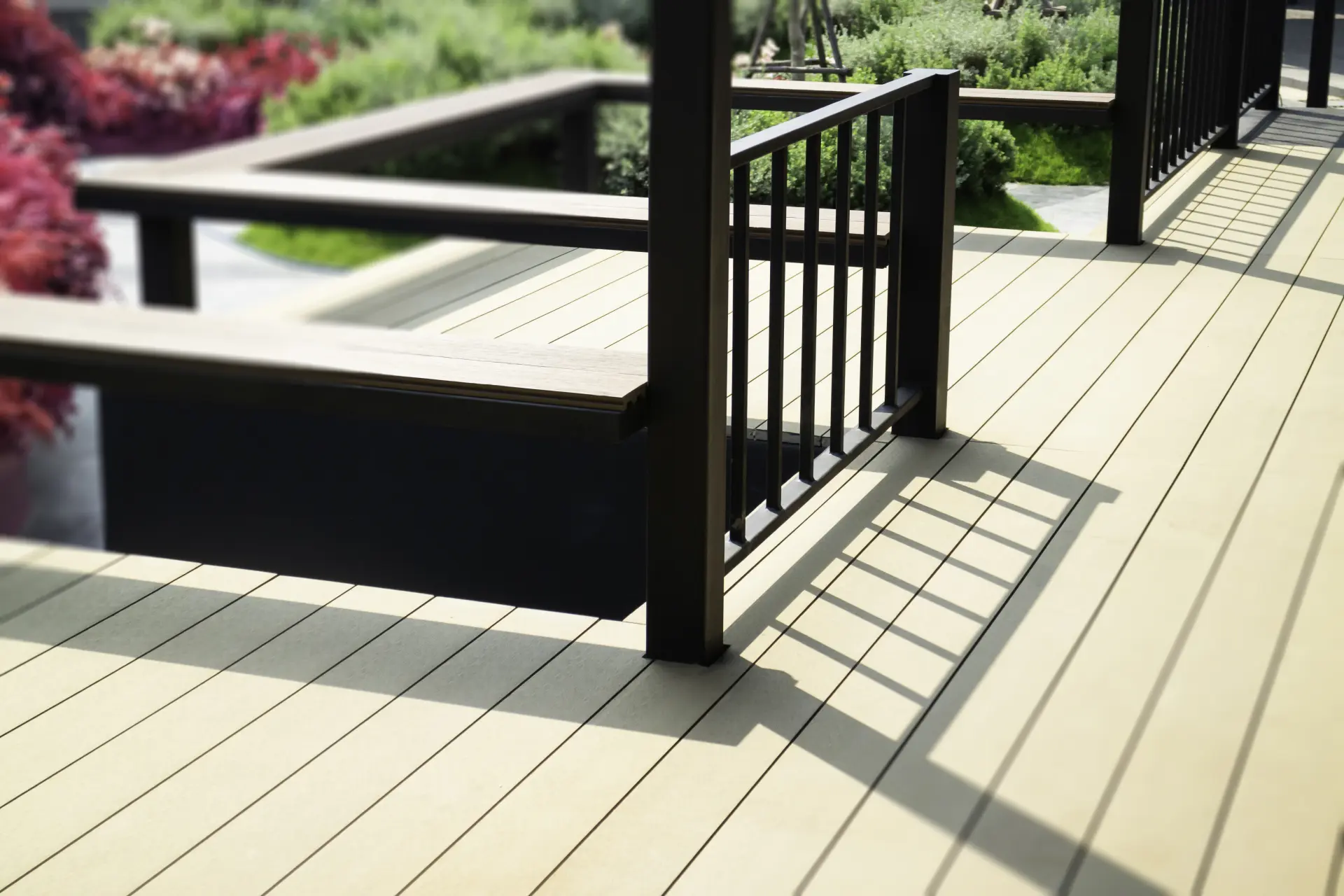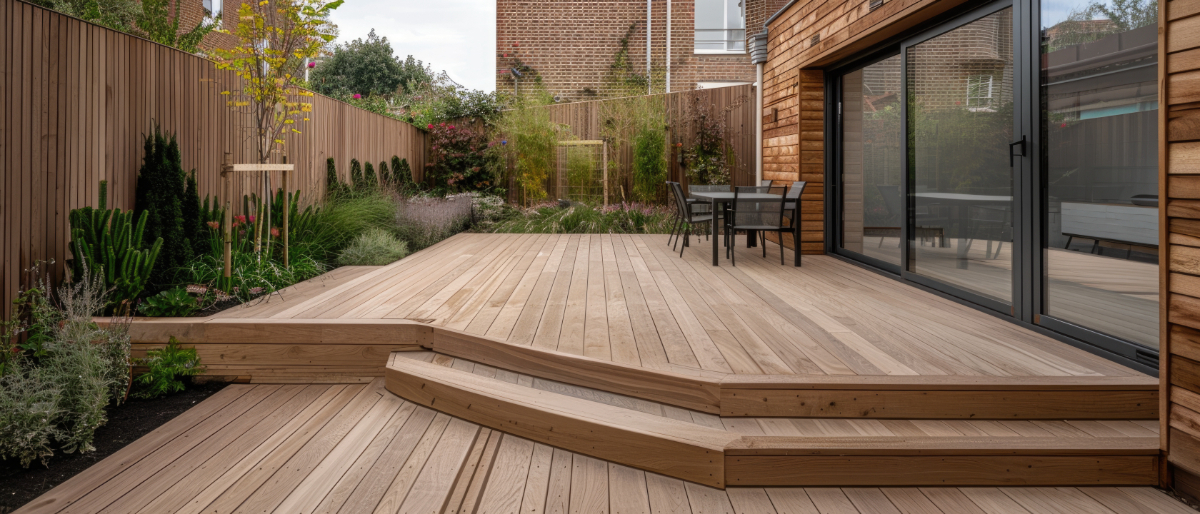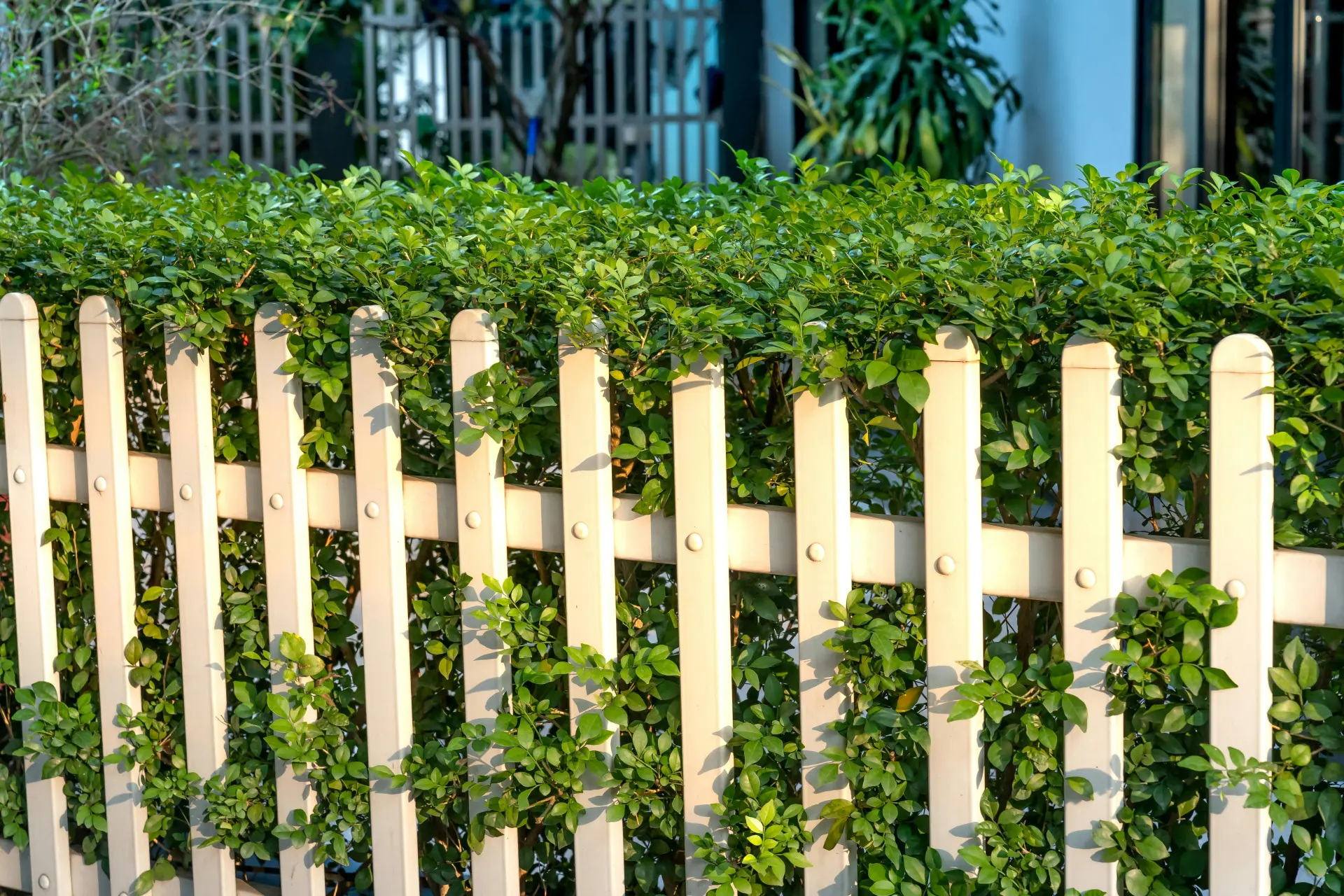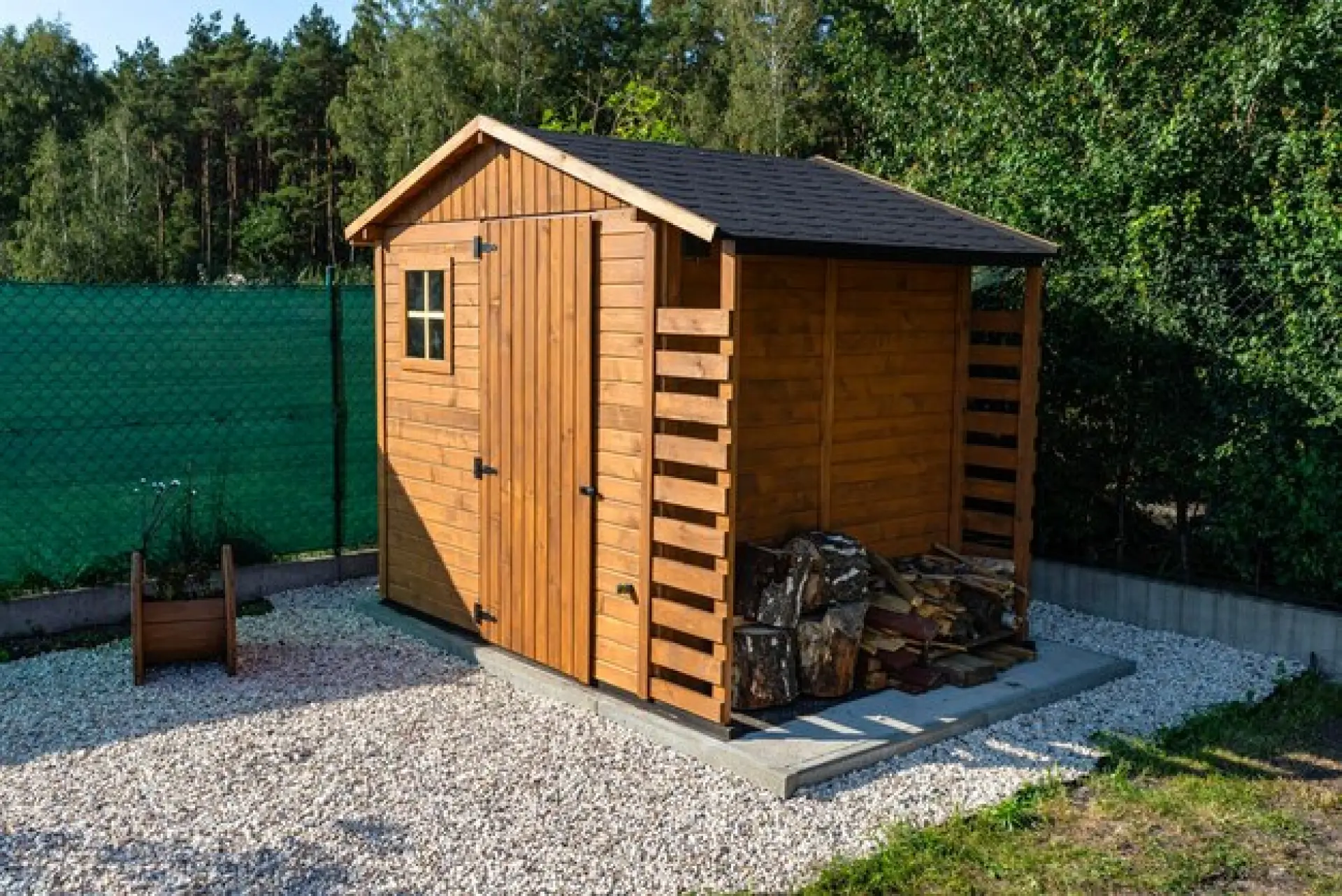Avoid common garden decking mistakes. Learn the implications of using wrong materials and steps to prevent deck rot, cracks, or slipperiness.
Choosing the Wrong Materials
Using the wrong materials for your garden decking can lead to many problems over time. Some types of wood are not suitable for outdoor use and can quickly become damaged in wet or cold weather.
If the wood is not treated properly, it may rot, crack, or become dangerously slippery. This can make the decking unsafe and difficult to maintain. You may think that cheaper materials seem like a quick way to save money, but it is not always the wisest option, as they can wear out much faster and need replacing sooner.
It’s important to choose strong, weather-resistant materials that are made for use outside, and this will help avoid any major wear and tear. This will help your decking last longer, stay safe, and keep its appearance.
Poor Planning and Design
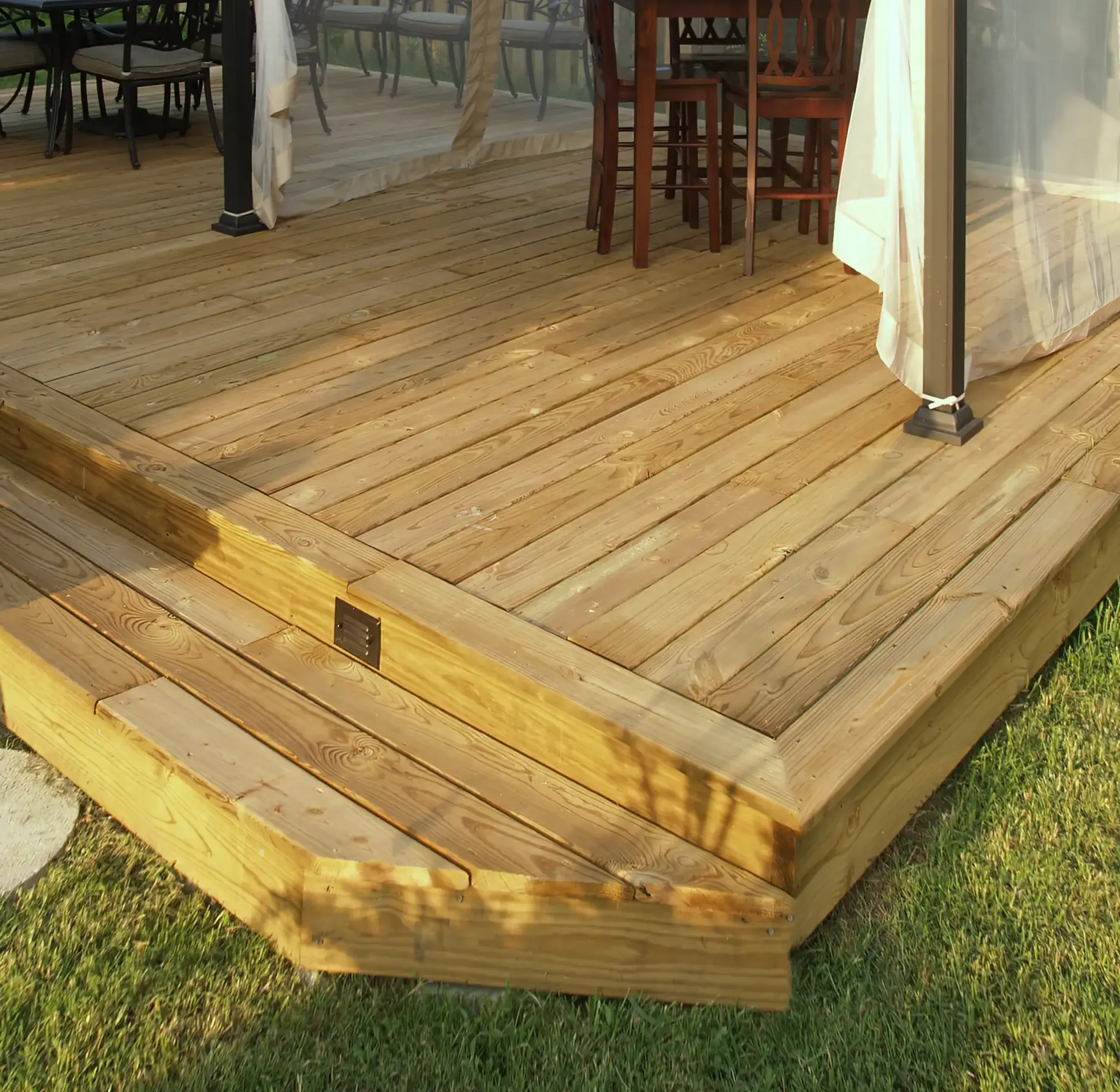
It's important to carry out thorough planning before going ahead and hiring a building team to start from scratch. Many landscaping teams out there can help you with planning, so make sure you hire one that can!
Poor planning and design can result in garden decking that doesn't work well with the rest of your environment or meet your current needs. Your decking might feel cramped or out of place if the size, shape, or layout is not thought through properly.
You may also end up with awkward spaces or areas that don’t get enough sunlight. It’s also important to think about access, safety, and how the decking will be used.
Without a clear plan, you could face problems later, such as needing to make changes or repairs. Taking the time to plan carefully helps ensure your decking is both useful and a good fit for your garden.
Ignoring Drainage Needs
Some homeowners can completely forget about drainage needs when building garden decking, so make sure this isn't you! Without proper drainage in your garden or outdoor space, water can build up under or around the decking.
Over time, this can cause your decking to experience wood rot, mould, and structural damage. Standing water can also make the surface slippery and unsafe.
Good drainage helps keep the area dry and protects the materials from wear. It's important to make sure water can flow away from the decking and not collect in one place. Planning for drainage from the start will help your decking last longer and stay safe to use.
Good drainage for garden decking means water can flow away easily and not build up. A slight slope helps water runoff, while small gaps between the boards let it drain through. The decking should be raised above the ground with space for air to move underneath.
A layer of gravel or draining material below can also help water soak into the soil. Using treated wood and keeping the frame off the soil helps prevent damage. Planning proper drainage helps your decking last longer and stay safe.
Overlooking Safety Features
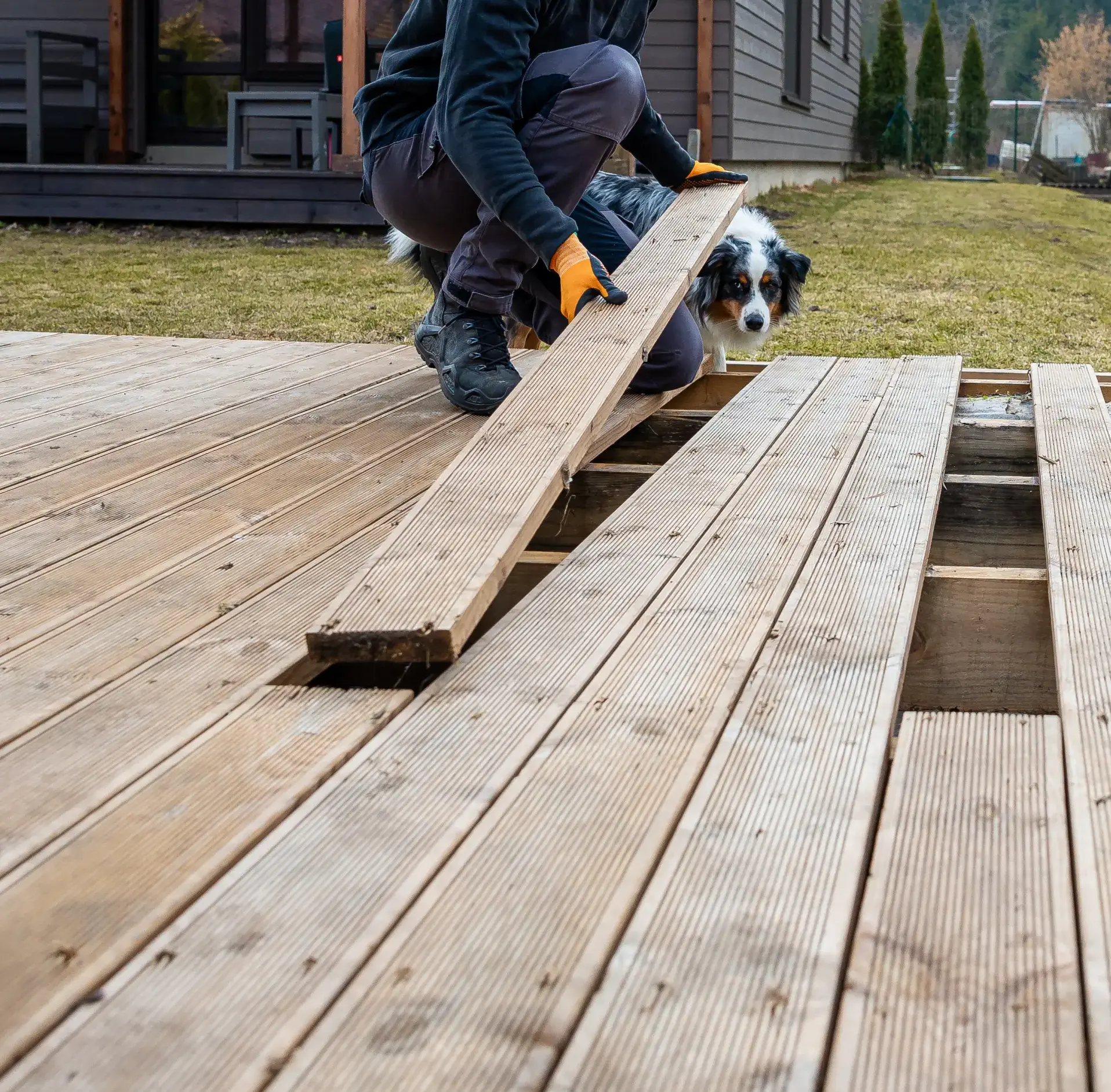
Overlooking safety features when building garden decking can lead to serious accidents and injuries. Without handrails on steps or raised edges, there’s a higher risk of people tripping or falling—especially children, older adults, or anyone with limited mobility.
Slippery surfaces caused by rain, moss, or algae can also make the decking dangerous to walk on. Using non-slip materials or adding grip strips can reduce this risk.
You mustn't forget to include lighting for your garden or outdoor decking. It is a feature that is usually forgotten by many home or property owners, as it isn't immediately associated with the building process but helps people move safely in the dark.
It's also wise to make sure your decking is properly built with a strong, stable frame that can support regular use.
Planning for safety from the start not only helps prevent accidents but also makes the decking more enjoyable and comfortable for everyone.
Neglecting Regular Maintenance
Neglecting regular maintenance can cause your garden decking to wear out much faster and experience much more structural damage. Dirt, leaves, and water can build up over time, leading to mould, rot, and a slippery surface. Without cleaning and checking for damage, small problems like loose boards or rusted screws can get worse and become more costly to fix.
Sweep the decking as often as you can, clean it properly now and then with water and decking cleaners, and check for signs of wear. Decking cleaners can help rid any dirt, grease, and staining and can also kill any algae, lichen and mould. Treating the wood with the right products also helps protect it from the weather. Frequent care keeps your decking safe, looks good, and lasts longer.
Tony Malpass deliver quality decking materials for Darwen, Blackburn, Bolton and Preston.

